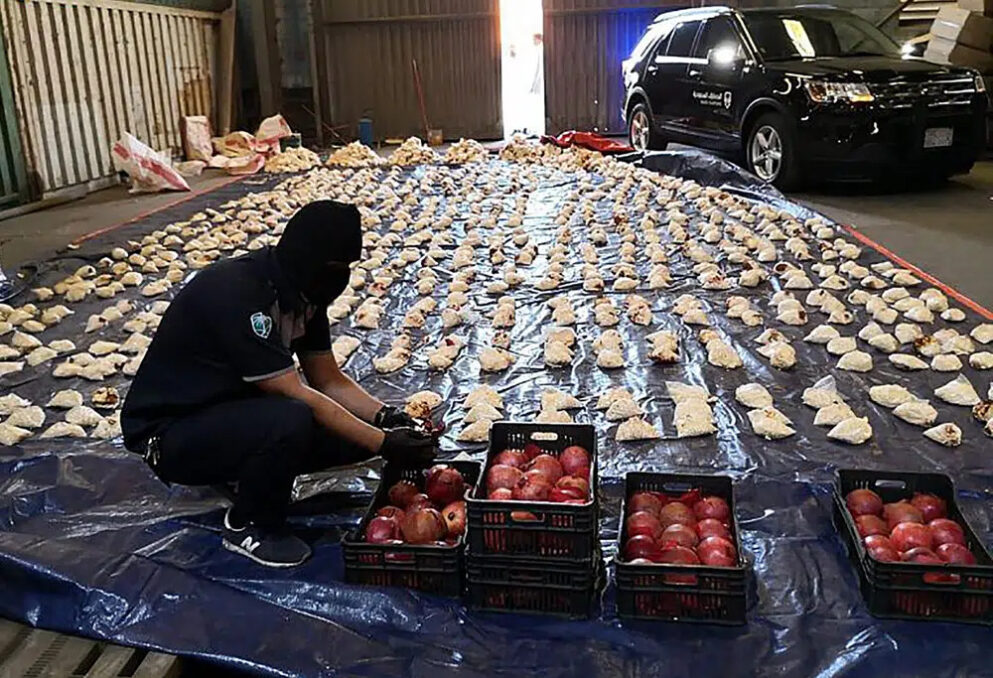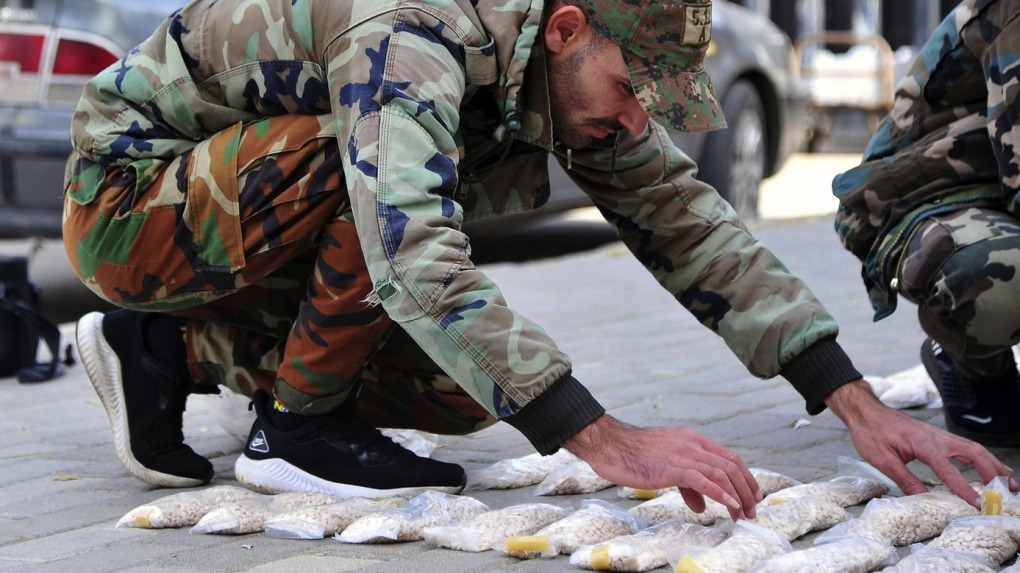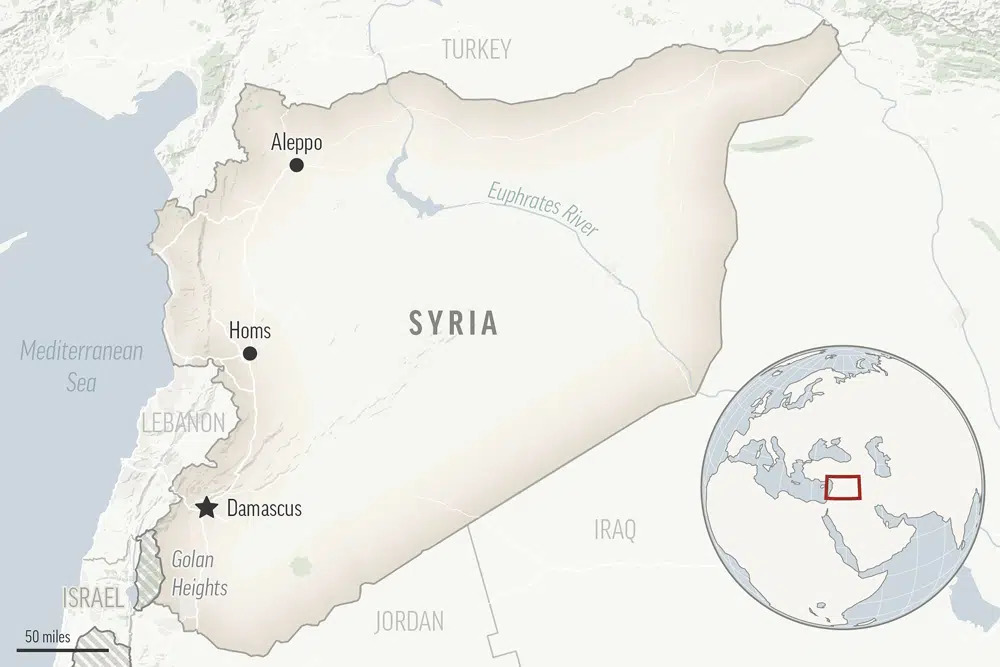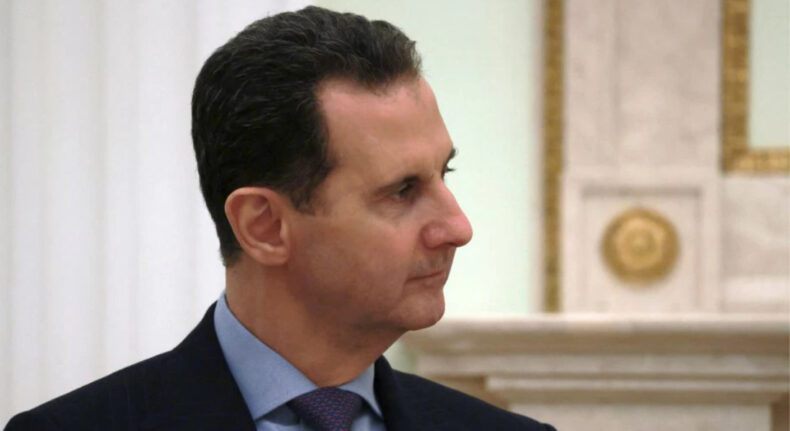The rehabilitation of Syria into the Arab League after decade-long isolation is followed by one of the major demands by Arab states which calls for an end to the illegal trade of Captagon which has served as lucrative earnings for the war-ravaged economy over the years.

Figure 1 Image Source: AP
Captagon as a tool of leverage
Syria under Bashar al-Assad had been under years of civil war which has severely devastated the once-growing economy. But, during the internal turmoil, the source of income was generated by smuggling of Captagon from Syria to other parts of the Middle East, Saudi Arabia being the largest market. As per the former U.S. special envoy Joel Rayburn, the Captagon trade is the country’s “most important” export and added that the Assad regime would “not survive the loss of Captagon revenues”. This trade turned Syria into a “narco state”.

Figure 2 Image Source: AP
According to the United States, Britain, and European Union, Hezbollah has also actively engaged in the illicit drug trade as it was one of the protagonists in the proxy war against opponents of the Syrian regime throughout the conflict. It is estimated that the Shia militia group has profited from the illegal trade of the pills. According to the findings of The New Lines Institute for Strategy and Policy, a Washington-based think tank, the pariah regime has pocketed a profit of approximately $5.7 billion. However, Hezbollah has denied all the accusations.
During the talks for the normalization of relations between Syria and other Arab states, putting an end to this drug trade was given utmost significance. Syria has been brought back to the Arab League a month ago, from which it was ousted in 2011 over atrocities committed on the protestors by its Alawite Shia President.
The country which was long alienated now has an instrument to manipulate things in its favour. In simple words, Arab states and Western countries want the captagon trade to be banned in lieu of Syria’s re-entry into the Arab League.
Therefore, it is weaponizing its unlawful activity for political gains. Moreover, Assad has assumed that through this agreement, there would be more aid flowing into the country, it will also foster Syria’s integration in the Middle East and as a result, western sanctions might be lifted.
But, things are not as easy as they seem. Western countries have already expressed their opinion on the issue. The US government has stated that it is neither going to acknowledge the Syrian regime nor is going to eliminate sanctions in the near future. Instead, US has introduced Assad regime anti-normalization act 2024. Apart from this, US government passed Captagon act in 2022 to deal with the trafficking of this addictive drug.
Air Strikes on Captagon factory
Amidst all the talks of halting the trade, air strikes were inflicted in Southern Syria yesterday which blew up the house of a drug mafia into ashes. According to the reports the drug dealer, Merhi al-Ramthan, his wife, and six children were also found dead.

Figure 3 Image Source: AP
Another strike demolished a captagon factory on the outskirts of the city of Daraa, close to the Jordanian border. It is considered that Jordan has carried out the strikes. However, in public interaction, Jordan’s foreign minister Ayman Safadi has denied such claims but simultaneously showed its willingness to embark on military action to keep the drug smuggling under check.
It is not the first time that Jordan is suspected to be involved in air strikes against the destruction of captagon havens. It has amplified the scrutiny along the Syrian border in the last few years and has attacked the smugglers.
Syria’s peace with the Arab League has chagrined the US and other Western governments because the normalization subverts the efforts to push Assad to accept conditions to end Syria’s languishing civil conflict. Western countries want Syria to agree to the blueprint designed by United Nations Security Council Resolution 2354 which was agreed by consensus in 2015. The resolution calls for a truce with the opposition, framing a new constitution and fresh elections under the surveillance of the United Nations.
The resolution has not been implemented so far. Assad has occupied almost the entire territory of Syria, thanks to Iran and Russia. Now that, Syrian regime has been de facto recognized by the Arab world with its recent inclusion in the Arab League, the expectations of Western world have been dashed to the ground.
However, Western sanctions still hold a grip over the shattered Syrian economy which are not going to be diminished unless Assad ruled Syria mends its ways.












